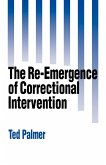Hostage negotiation is one of the most remarkable sub-specialties in the corrections environment. Through a combination of tactical communication, empathic connection and, at times, subterfuge, negotiators persuade desperate, suicidal or homicidal individuals, often intoxicated or mentally ill, to relinquish their position of power and submit to the authority of the correctional institution. This is the second book in Amdur and Eddy's series. It focuses specifically on the corrections environment. In this book, the reader will find thirty-two different training scenarios that cover the gamut of mental illness and personality disorders. Most of them are based on cases that one or the other of the authors have actually encountered. There are full instructions on how to set up the scenario, and how to brief the role player so that he or she plays it true-to-life. The scenarios are colorful, unpredictable, and multi-layered, and require active involvement of the secondary negotiator and the rest of the team for intelligence gathering. Just as a real situation can change radically when new information is acquired, most of the scenarios will have unexpected twists that require the negotiators to think on their feet, and sometimes diametrically change directions. Many include ERT, and some are specifically crafted so that tactical officers can practice various skills during the scenarios, such as food deliveries, release of an injured hostage, delivery of the throw phone, or documents the subject has demanded. They can plant listening devices, or attempt to get a visual on the scene. Team leaders can program the negotiation exercise for 'failure,' something that neither ERT nor the negotiators will be informed. When it is suddenly time to go, they must be ready to tactically respond. Although it is an educational read for anyone involved in crisis intervention, far beyond corrections work - it is written as a resource book for HNT/CNT teams.
Hinweis: Dieser Artikel kann nur an eine deutsche Lieferadresse ausgeliefert werden.
Hinweis: Dieser Artikel kann nur an eine deutsche Lieferadresse ausgeliefert werden.








